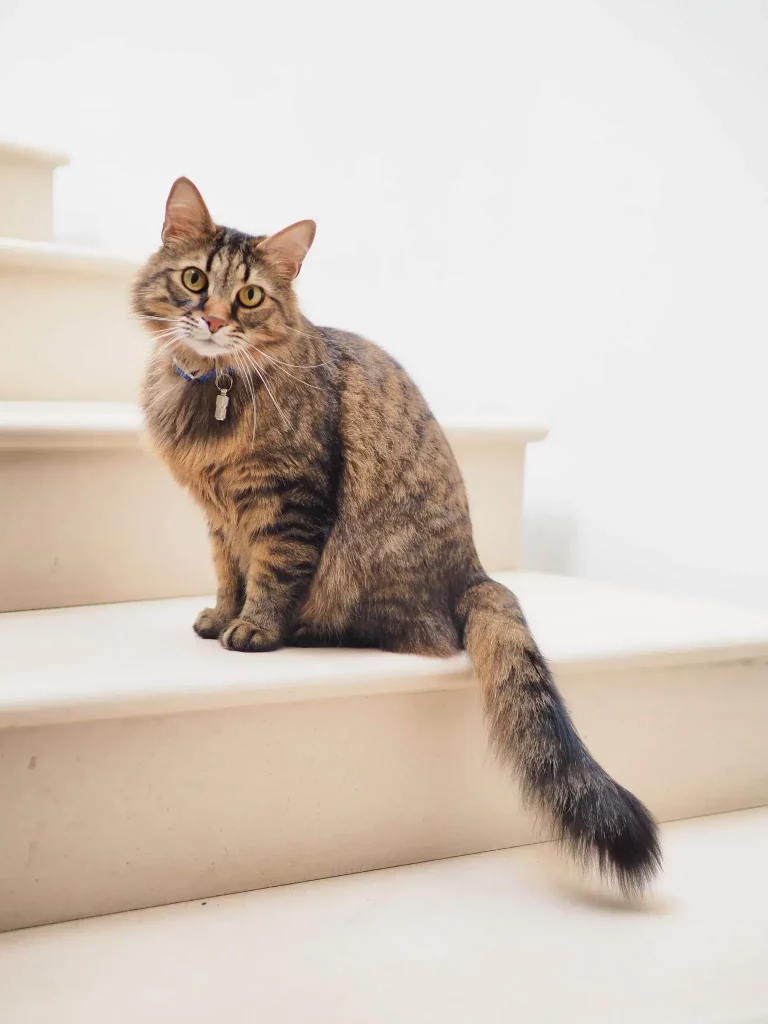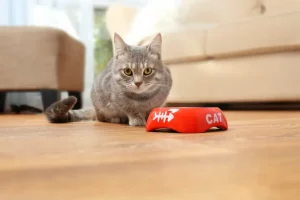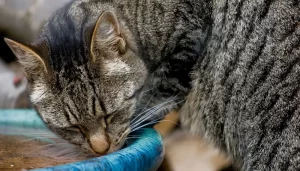Knowing the signs and symptoms of kidney disease can help you to work with us to provide the best possible care for your cat. Early detection and proper management of kidney disease can make a difference in the quality and quantity of your cat’s lives.
What is Stage 1 Chronic Kidney Disease?
- Normal blood creatinine, or mild elevation in SDMA
- Inadequate urine concentration
- Urine protein loss
- The above are serial measurements that show an increase in the number of these variables over time.
How can we substage Stage 1 of CKD in cats
- Urine Protein: Creatinine measurements in two samples at least two weeks apart and then every 2-3 months
- Monitoring of systolic blood pressure for up to 1-2 weeks
Cats can be moved from a higher stage of CKD to a less severe one by proper treatment.
What is Stage 1 CKD treatment for cats?
Each cat’s treatment must be customized. This treatment is designed to slow down the progression of CKD, prolong kidney function and improve quality of life.
Management of dehydration
- Always have fresh water for drinking
- Correct dehydration immediately if you are ill or have lost fluids
Systemic hypertension
- The goal is to keep the systolic blood pressure under 160mmHG
- Calcium channel blocker, such telmisartan and/or amlodipine
- Consider dietary sodium restriction
- Once blood pressure is stable, you can recheck it every 3 months.
Proteinuria (protein in urine):
- Your veterinarian may prescribe a diet for your pet’s renal health.
- A Renin-angiotensin-aldosterone system (RAAS) inhibitor, ACE inhibitor, or other prescription medication may be prescribed
Monitoring Stage 1 Chronic Kidney Disease
- Every 3 months, a chronic condition exam is performed
- Every 3-6 months, blood pressure and urine proteins should be reevaluated
- Every 3-6 months, reassess your blood chemistries
- Home observation of decreased appetite, increased thirst, urination, vomiting, or lethargy
What should I do if my kidneys are failing?
Our recommendation to prescribe a diet for kidney disease is influenced by many factors. These factors include:
- Urine protein level
- Blood phosphorus level
- General stage of CKD
- You and your cat’s individual preferences
A high-quality Senior Diet can be better for your cat’s kidney health than a prescription diet. We recommend that you consult us before making any changes to your cat’s diet.
We can help you to understand your options for keeping your cat healthy. We are honored to have the opportunity to care for your cat.



